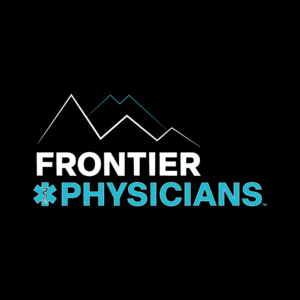The American Recovery and Reinvestment Act of 2009 (Recovery Act) authorizes the Centers for Medicare & Medicaid Services (CMS) to provide reimbursement incentives for eligible professionals and hospitals who are successful in becoming “meaningful users” of certified electronic health record (EHR) technology. The Medicare EHR incentive program will provide incentive payments to eligible professionals (EPs), eligible hospitals, and critical access hospitals (CAHs) that are meaningful users of certified EHR technology.
Incentive payments will be made to EPs and hospitals for efforts to adopt, implement, or upgrade certified EHR technology for meaningful use in the first year of their participation in the program and for demonstrating meaningful use during each of five subsequent years. Requirements for meaningful use incentive payments will be implemented over a multi-year period, phasing in additional requirements that will raise the bar for performance on IT and quality objectives in later years. These incentive payments begin in 2011 and gradually decrease. Starting in 2015, providers are expected to have adopted and be actively utilizing a certified EHR in compliance with the “meaningful use” definition or they will be subject to financial penalties under Medicare.
Below are key points on how the final rule will impact critical access hospitals (CAHs). This criterion applies to Stage 1 of meaningful use. It is anticipated that there will be at least three stages of meaningful use. Stage 1 criteria for meaningful use can be found on page 52: http://www.ofr.gov/OFRUpload/OFRData/2010-17207_PI.pdf
- There are a reduced number of required meaningful use objectives: The proposed rule for meaningful use had an all or nothing standard with providers needing to meet 23 required hospital objectives and 25 required meaningful use objectives for eligible professionals (EPs) to attain HIT Medicare and Medicaid incentive payments. The final rule has only 14 required objectives for hospitals and 15 required objects for EPs. An additional five objectives need to be chosen from a set of ten menu requirements. Generally, the most challenging objectives are on the menu list rather than the required list. Stage 1 meaningful use objectives and associated measures can be found starting on page 221: http://www.ofr.gov/OFRUpload/OFRData/2010-17207_PI.pdf
- While Computerized Physician Order Entry (CPOE) remains a required objective, it has been modified to include pharmacist or RN medication order entry: The proposed rule only counted orders entered directly by ordering physicians toward a required 10% CPOE utilization metric to meet the definition of meaningful use. The final rule has raised the utilization requirement to 30%, but orders no longer need to be entered directly by the ordering physician. Any “licensed health care professional” such as pharmacists, registered nurses, nurse practitioners and physician’s assistant may enter CPOE orders on behalf of the physicians. This means that these licensed health care professionals (who in most hospitals currently enter handwritten physician orders) can be utilized to meet the CPOE requirement, which postpones CPOE physician adoption challenges into later meaningful use stages.
- CAHs are now eligible for the Medicaid incentive: The proposed rule excluded CAHs from participating in the Medicaid program. CAHs that meet the 10% Medicaid utilization threshold are entitled to the full “acute care hospital” amount of the Medicaid formula, just like prospective payment system (PPS) hospitals. CAHs can receive both Medicare and Medicaid incentives but EPs will still need to choose between Medicare and Medicaid incentives.
- The required quality metrics that have been reduced to 15 are endorsed by the National Quality Forum (NQF) and tested for electronic use. Please note that this is different from the NPRM and that the quality metrics reporting is different than the required meaningful use objectives in the first bullet point.
- The CAH eligible expense incentive, while not clearly defined, remains broad: by defining a CAH eligible expense as “depreciable costs necessary for the administration of certified EHRs,” CMS may have effectively signaled that it intends to provide incentive funding for a large portion of costs necessary for CAHs to implement comprehensive EHR environments, including network infrastructure, security systems, PACS, and other EHR-related depreciable costs.
- Additional Resources
1. CMS/ONC fact sheet on the rules, http://www.cms.gov/EHRIncentivePrograms/
2. Technical fact sheet on ONC’s standards and certification criteria final rule, http://healthit.hhs.gov/standardsandcertification
3. Meaningful use final rule, http://www.ofr.gov/OFRUpload/OFRData/2010-17207_PI.pdf
4. Standards, implementation specifications, and certification criteria for EHR technology final rule, http://www.ofr.gov/OFRUpload/OFRData/2010-17210_PI.pdf

